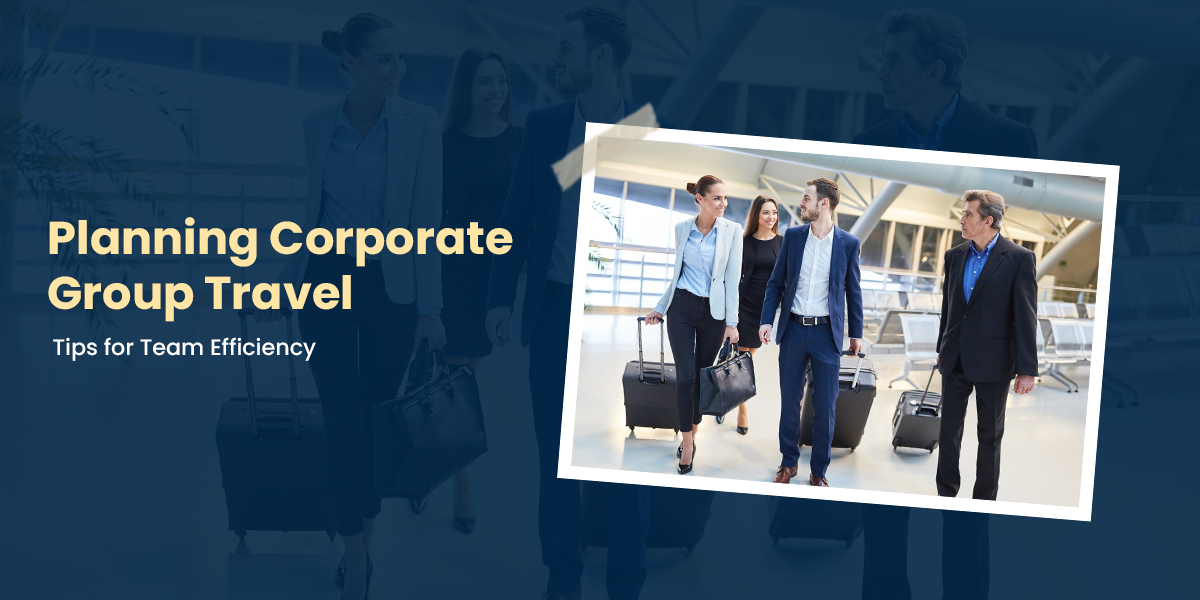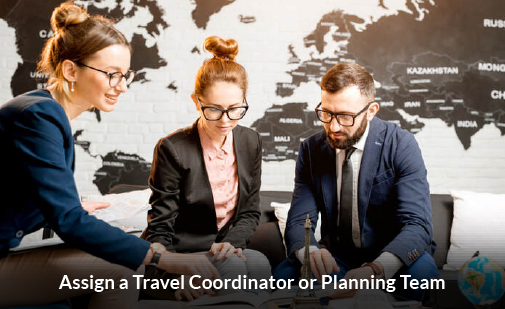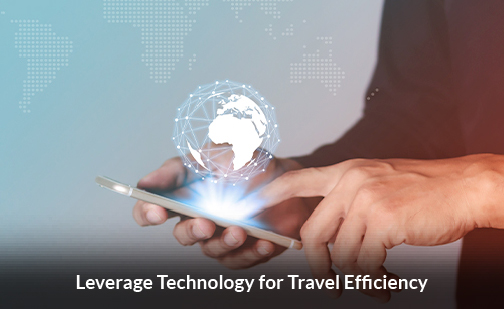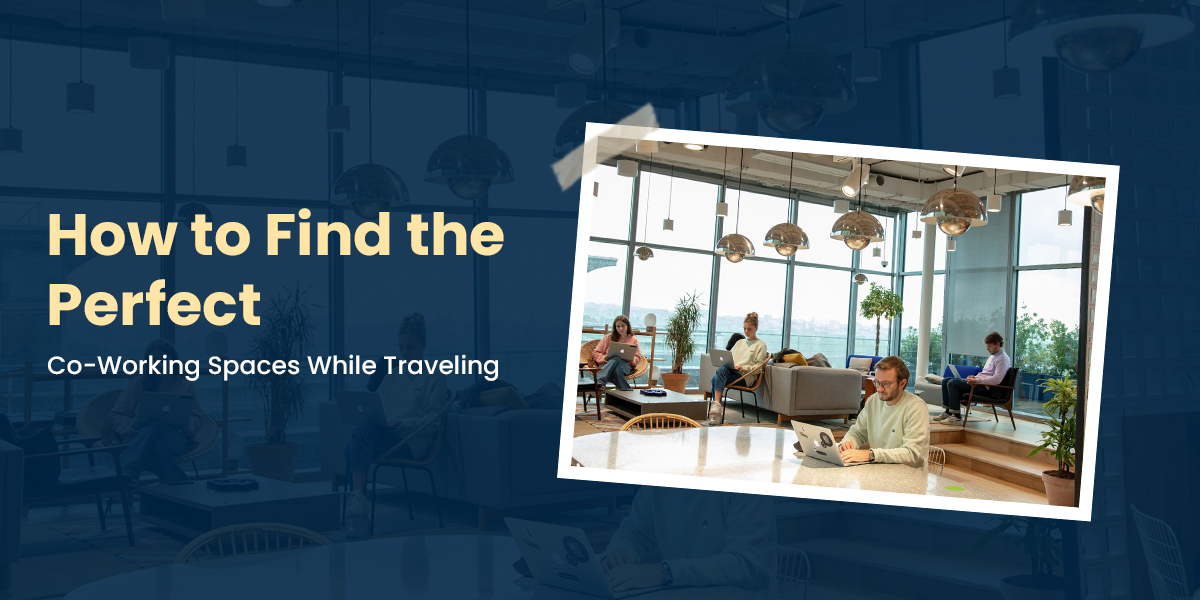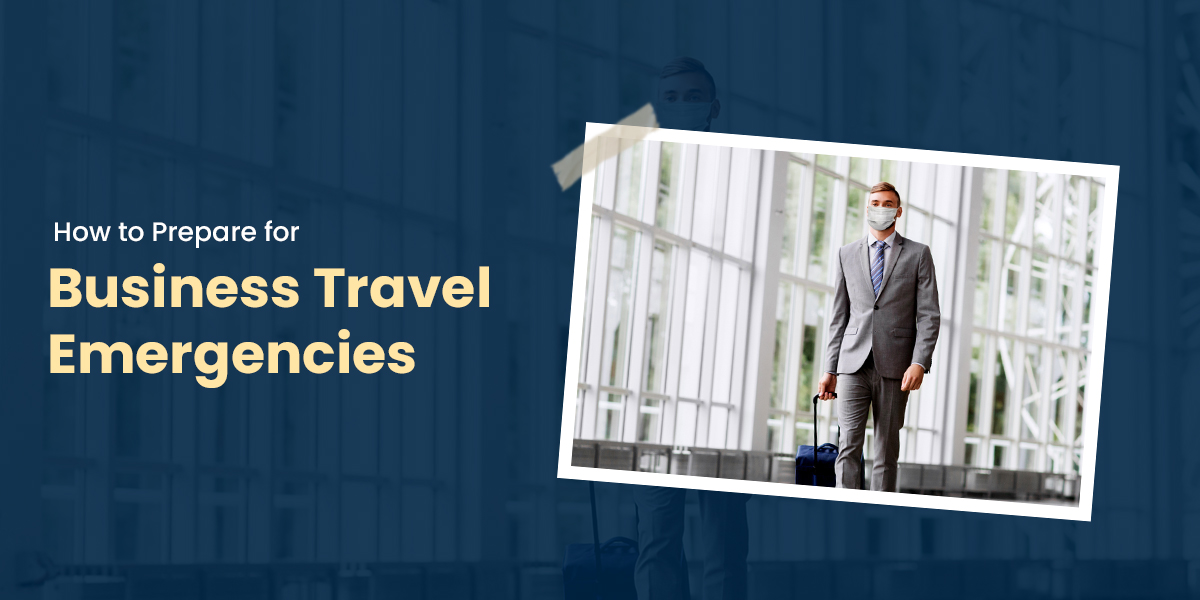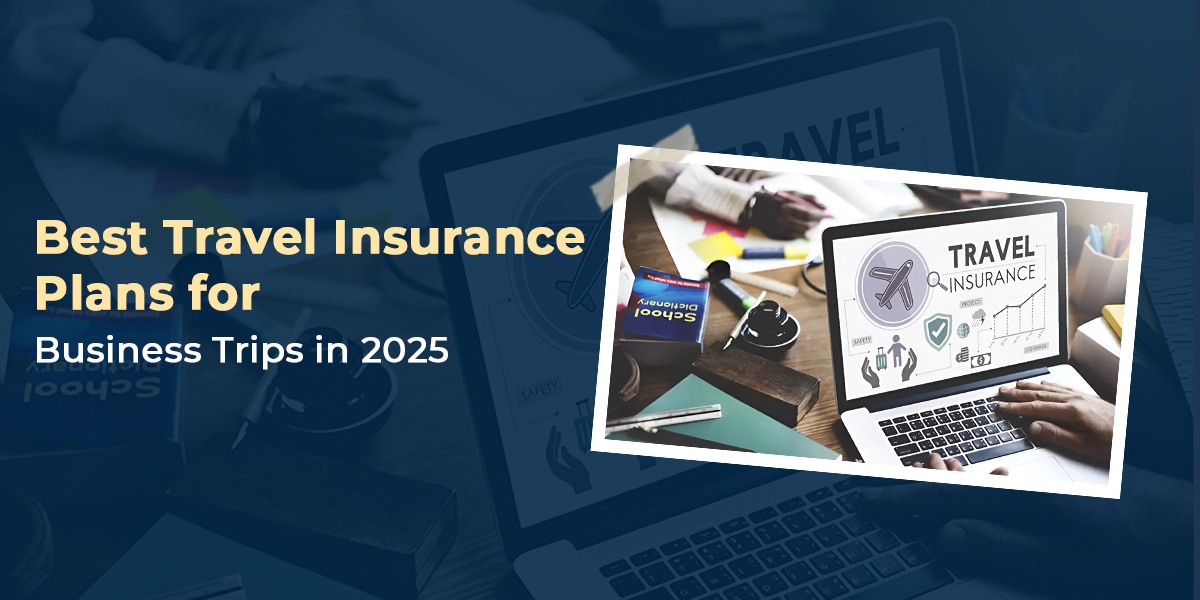This requires careful planning. Whether it's for a conference, team-building retreat, or client meeting, business travel should be easy and productive. Bad planning can lead to holds, confusion, and unneeded stress, affecting both employee confidence and company resources.
A well-structured work travel plan not only improves efficiency but also makes sure that the team stays focused on business objectives rather than managing hassles. By exploiting the proper plans, technology, and contact tools, companies can simplify the process, minimize costs, and maximize productivity.
Here are some essential tips for planning corporate group travel, ensuring a hassle-free experience that benefits both the company and its employees.
Define the Objectives of the Trip
Before diving into logistics, it is required to outline the purpose of the corporate trip. Is it for networking, client engagement, skill development, or internal team bonding? Understanding the main objectives helps in making key decisions regarding destination, duration, and itinerary.
Key Considerations
Clear Goals- Select measurable outcomes, such as forming business partnerships or team skill enhancement.
Target Audience- Determine who needs to attend to achieve the trip’s objectives.
Expected ROI- Justify the cost by assessing the expected benefits.
Assign a Travel Coordinator or Planning Team
Managing corporate travel efficiently requires a dedicated point of contact. Assigning a travel coordinator or forming a planning team ensures smooth coordination of logistics, budgeting, and troubleshooting.
Responsibilities
Booking flights and accommodations
Coordinating schedules
Managing expenses
Handling last-minute changes
Ensuring compliance with corporate travel policies
Set a Realistic Budget
A well-defined budget controls overspending and assures financial accountability. Factor in transportation, lodging, meals, event registrations, and incidental expenses.
Cost-Saving Strategies-
Book early- Book hotels in advance, as this gives opportunities to grab discount
Negotiate corporate rates- Many airlines and hotels offer special rates for business travelers.
Use travel management software- Many online platforms help track expenses and identify cost-saving opportunities.
Opt for group packages- Some venues offer discounts for large groups.
Choose the Right Destination and Accommodations
Selecting the right destination and accommodations greatly impacts the success of the trip. The location should align with the trip’s purpose while ensuring convenience and comfort.
Factors to Consider
Proximity to meeting venues or conference centres
Availability of business-friendly hotels with meeting rooms and good internet
Local transportation and accessibility
Safety and local regulations
Accommodation Tips
Centralized location- Choose hotels close to business events to reduce travel time.
Flexible booking policies- Ensure cancellation and modification options are available.
Facilities- Look for essential services such as conference rooms, printing facilities, and high-speed internet.
Create a Detailed Itinerary
A well-structured itinerary ensures all attendees are informed and prepared. A clear schedule minimizes confusion and maximizes productivity.
Essential Inclusions
Flight details and transportation information
Meeting schedules and venue locations
Meal arrangements and downtime activities
Emergency contacts and contingency plans
Using a shared digital itinerary, such as Google Docs or apps like TripIt, ensures real-time updates and accessibility for all team members.
Streamline Transportation and Logistics
Efficient transportation arrangements reduce stress and save time. Pre-arrange group transportation for smooth movement between locations.
Best Practices-
Book direct flights when possible to avoid layover delays.
Arrange airport transfers to prevent last-minute confusion.
Use ride-sharing services or chartered vehicles for seamless travel between events.
Ensure team members have mobile navigation apps for self-guided transit when needed.
Foster Effective Communication
Strong communication ensures alignment among all participants, reducing potential disruptions.
Communication Strategies-
Use a central communication platform- Apps help in instant coordination.
Schedule daily check-ins- Short team meetings to ensure alignment on the day’s agenda.
Designate a contact person- Having a go-to person for travel-related queries improves coordination.
Leverage Technology for Travel Efficiency
Technology plays an important role in optimizing corporate travel, from booking to real-time coordination.
Recommended Tools
Expense Management- Expensify, SAP Concur
Booking and Travel Management- TravelPerk, TripActions
Itinerary Management- TripIt, Google Calendar
Communication- Slack, WhatsApp, Zoom
Navigation- Google Maps, Citymapper
Prepare for Emergencies
Unexpected situations can arise during corporate travel, so having a contingency plan is essential.
Emergency Preparedness
Ensure all team members have emergency contacts
Provide travel insurance for coverage in case of flight cancellations, medical emergencies, or lost luggage
Have backup copies of important documents, such as passports and itineraries
Stay informed about local laws, health advisories, and safety measures
Incorporate Team-Building and Leisure Activities
While business remains the primary focus, incorporating leisure and team-building activities enhances morale and engagement.
Ideas for Team Bonding
Networking dinners at renowned local restaurants
Outdoor activities, such as guided city tours or adventure sports
Cultural experiences, like museum visits or local performances
Relaxation time, ensuring team members stay refreshed
Gather Feedback and Improve Future Trips
After the trip, collecting feedback helps refine future travel plans and enhances team experiences.
Post-Trip Review-
Conduct surveys to evaluate accommodations, logistics, and overall satisfaction
Analyze expense reports to identify budget efficiencies
Document lessons learned for future improvements
Recognize and appreciate the travel team for the smooth execution
Team Travel Simplified
Corporate group travel, when arranged efficiently, can be more than just an overseeing need—it can be a powerful tool for team bonding, professional development, and business growth. By facilitating travel processes, using the right technology, and keeping employee experience in mind, organizations can turn business trips into productive and enjoyable experiences.
A well-organized trip ensures that teams stay focused on their goals, have no stress, and make the most of every opportunity. Whether it's closing deals, attending industry events, or strengthening client relationships, everything goes with ease. With the right planning, corporate travel becomes more than just a journey; it becomes a strategic advantage that drives success.
